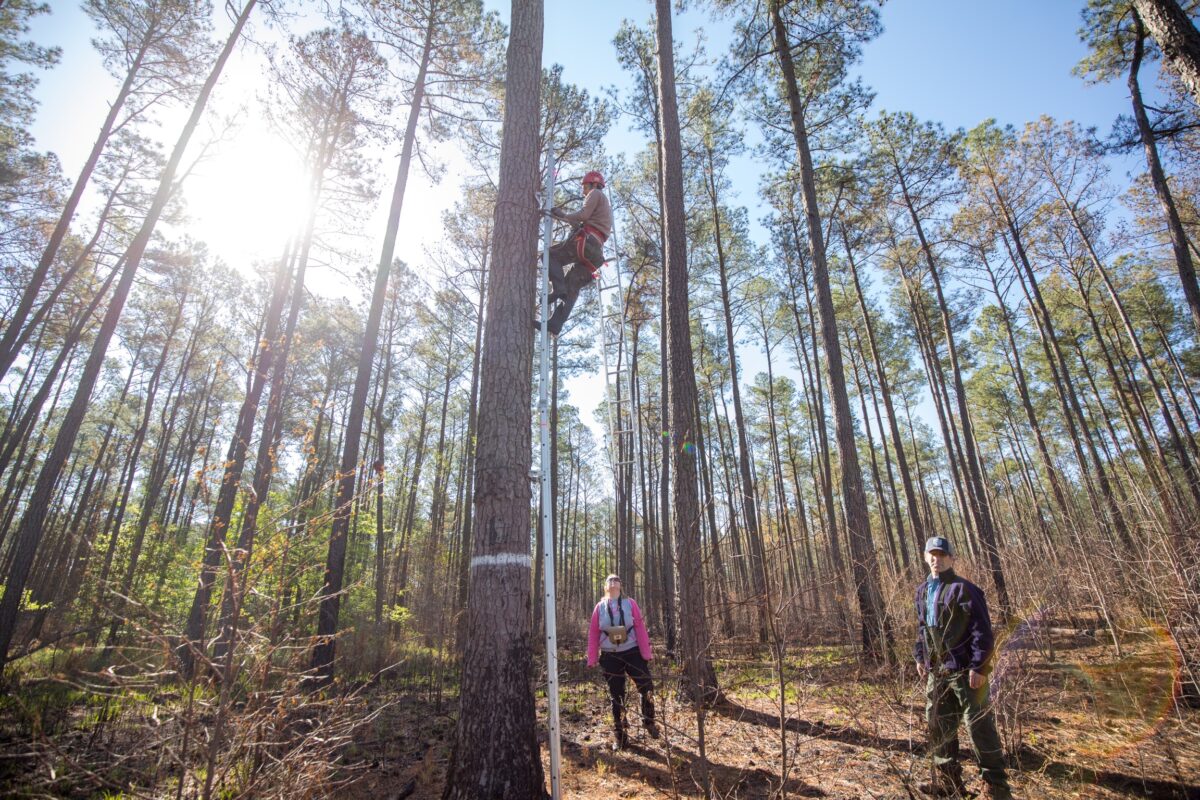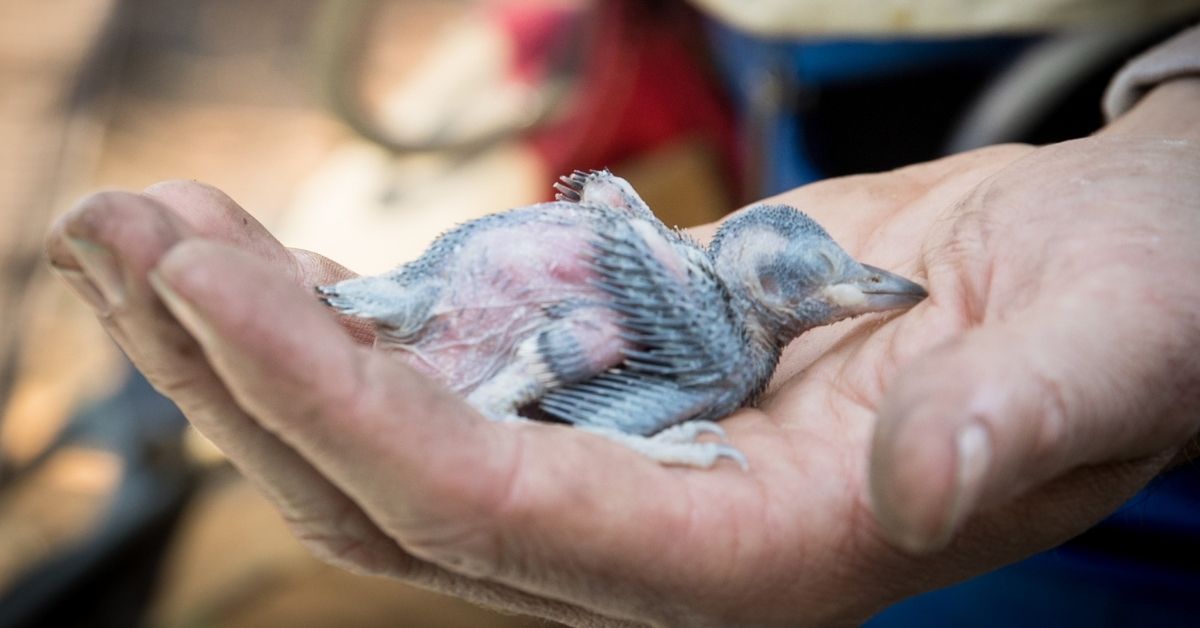
One of the red-cockaded woodpecker nestlings.
By Sergio Harding, DWR Nongame Bird Conservation Biologist
Photos by Meghan Marchetti / DWR
Banding birds allows biologists to track their movements and status over time. When a banded bird is re-sighted in the field it yields a wealth of information, including its longevity, its use of space over time, and its relationship to the other birds with which it interacts.
Banding is especially important for tracking the small but growing population of red-cockaded woodpeckers clustered in the Piney Grove Preserve and Big Woods Wildlife Management Area (WMA) in Sussex County. This population numbers just over 100 individuals arranged in 15 “potential breeding groups” – in each group, only the breeding pair nests and the remaining birds assist with rearing young. In a population this size, tracking every individual is important.
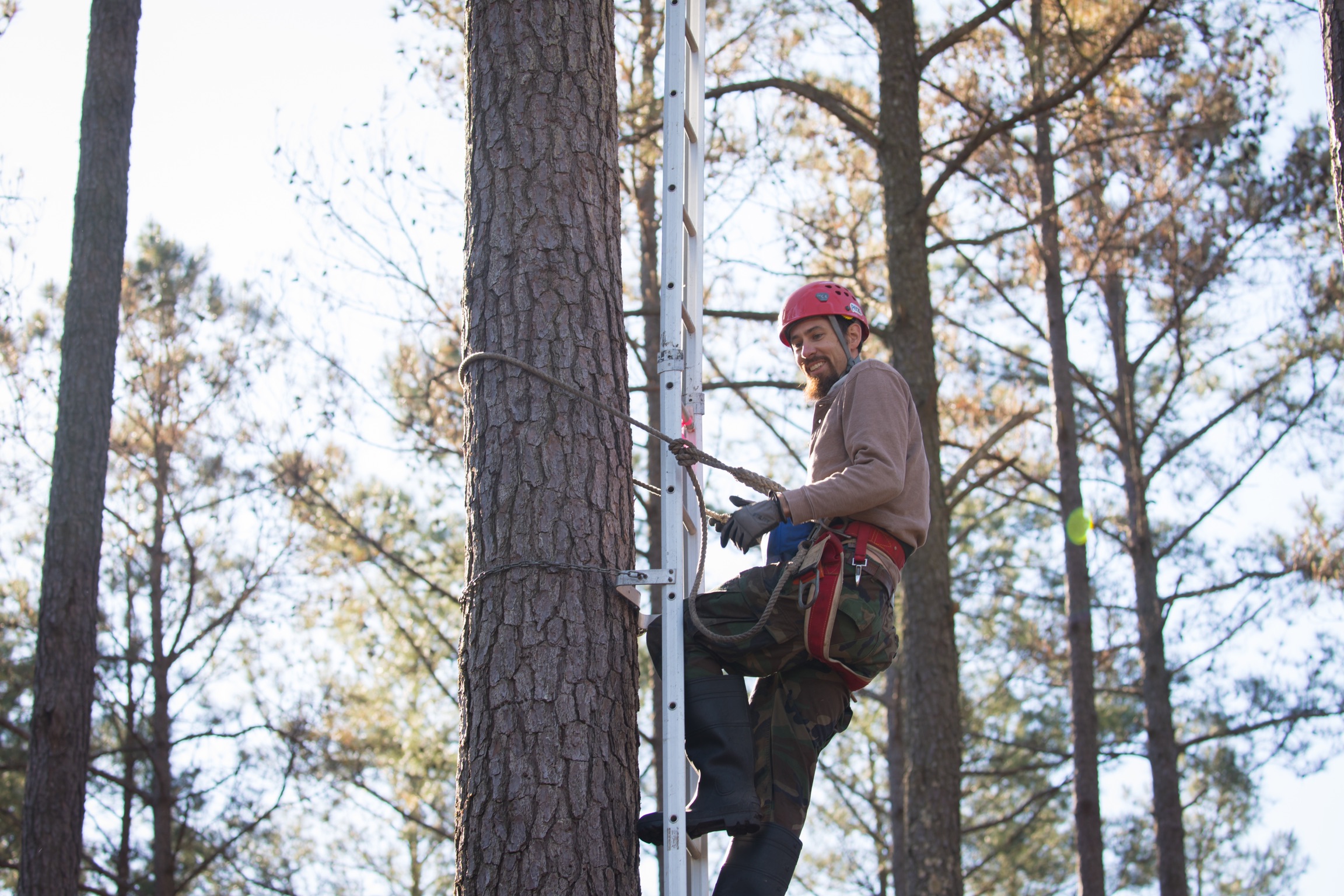
On the morning of Friday, May 14, the two newest additions to Big Woods WMA received their bands. Hatched from a clutch of 4 eggs, the 8-day-old woodpecker nestlings weighed in at a healthy 31.5 and 34 grams (1.1 and 1.2 oz).
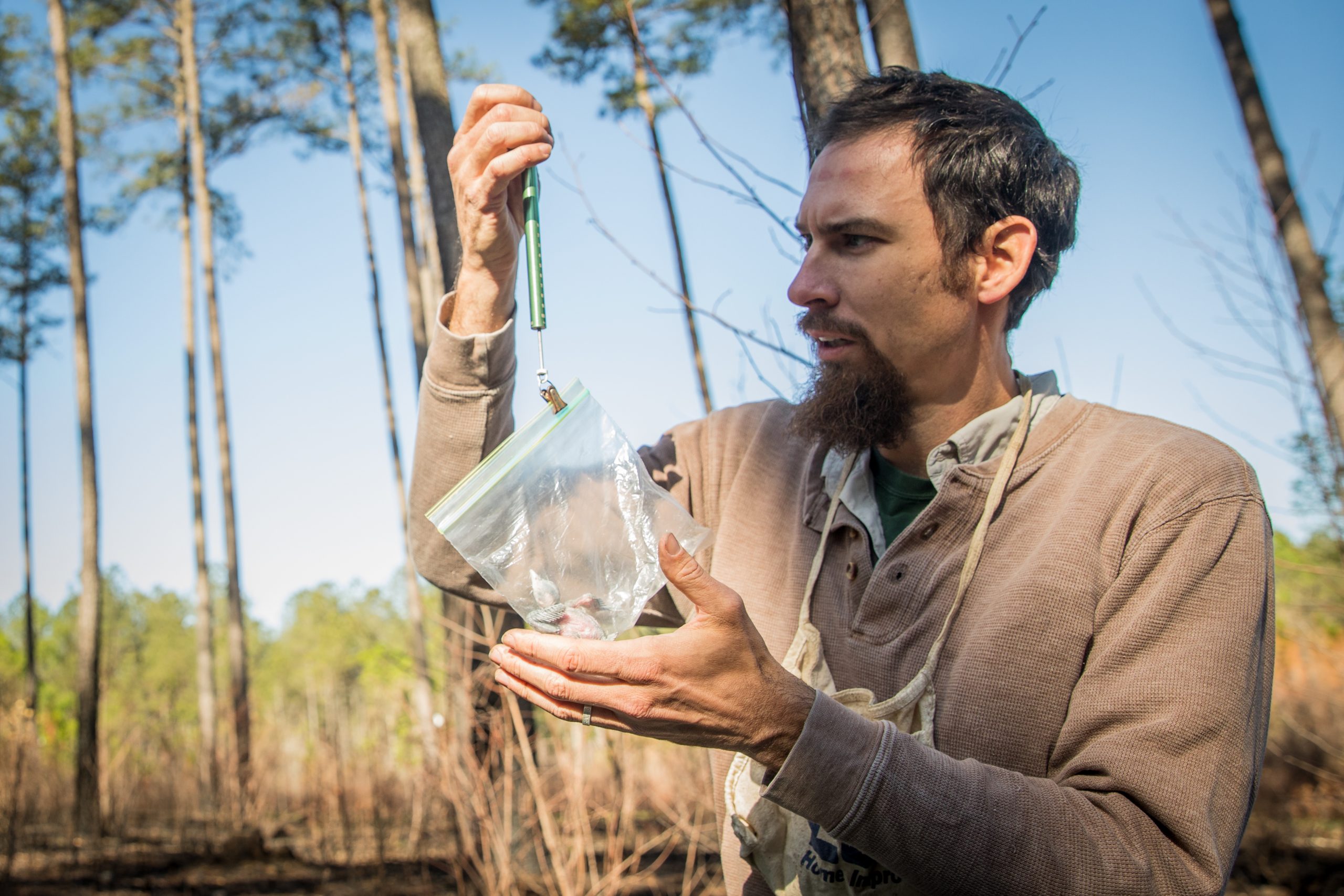
One of the nestlings being weighed.
A biologist from the Center for Conservation Biology at the College of William and Mary, specially trained to handle this federally endangered species, extracted the birds from their nest cavity and banded each with a unique combination of aluminum and colored plastic bands.
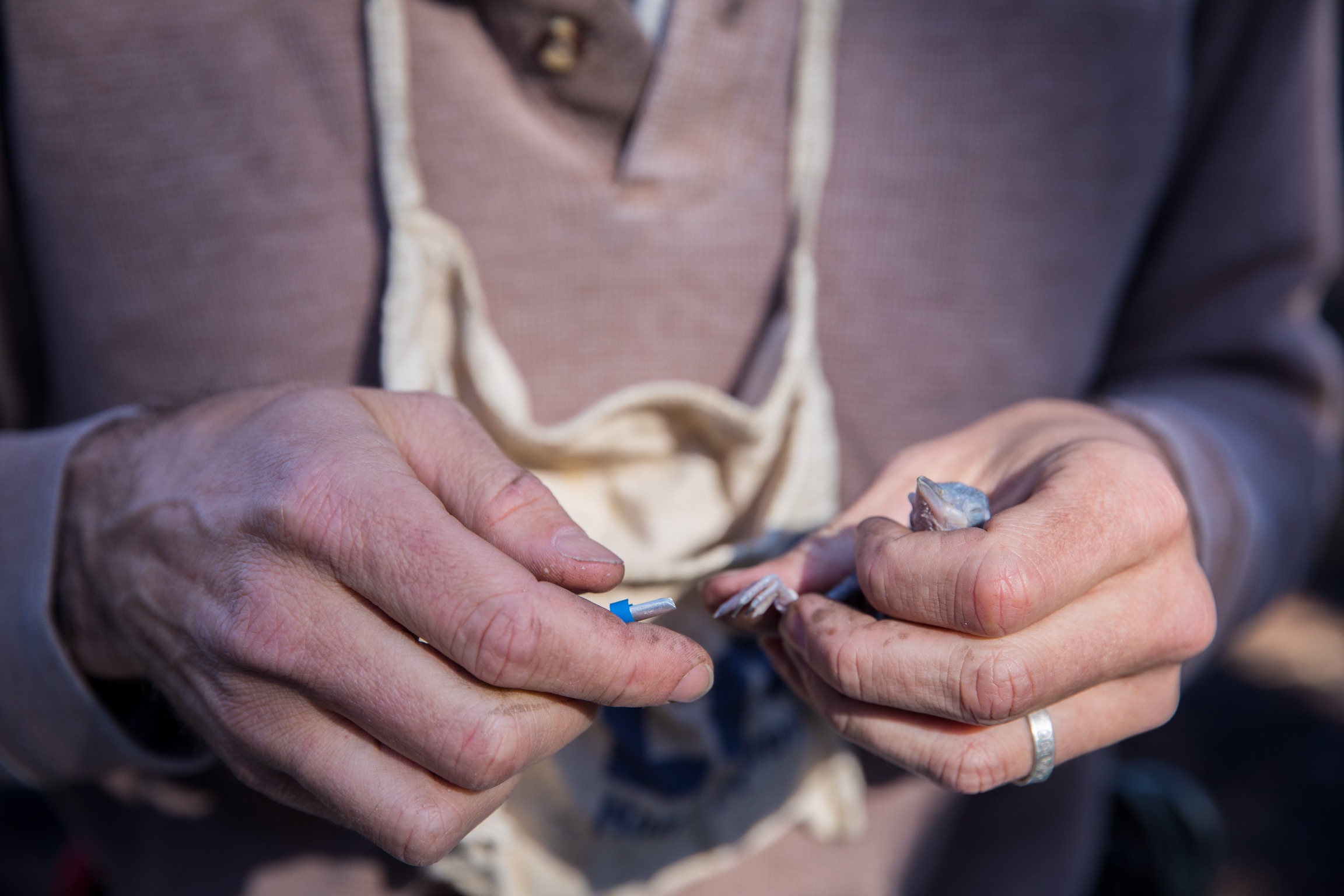
The nestling being banded.
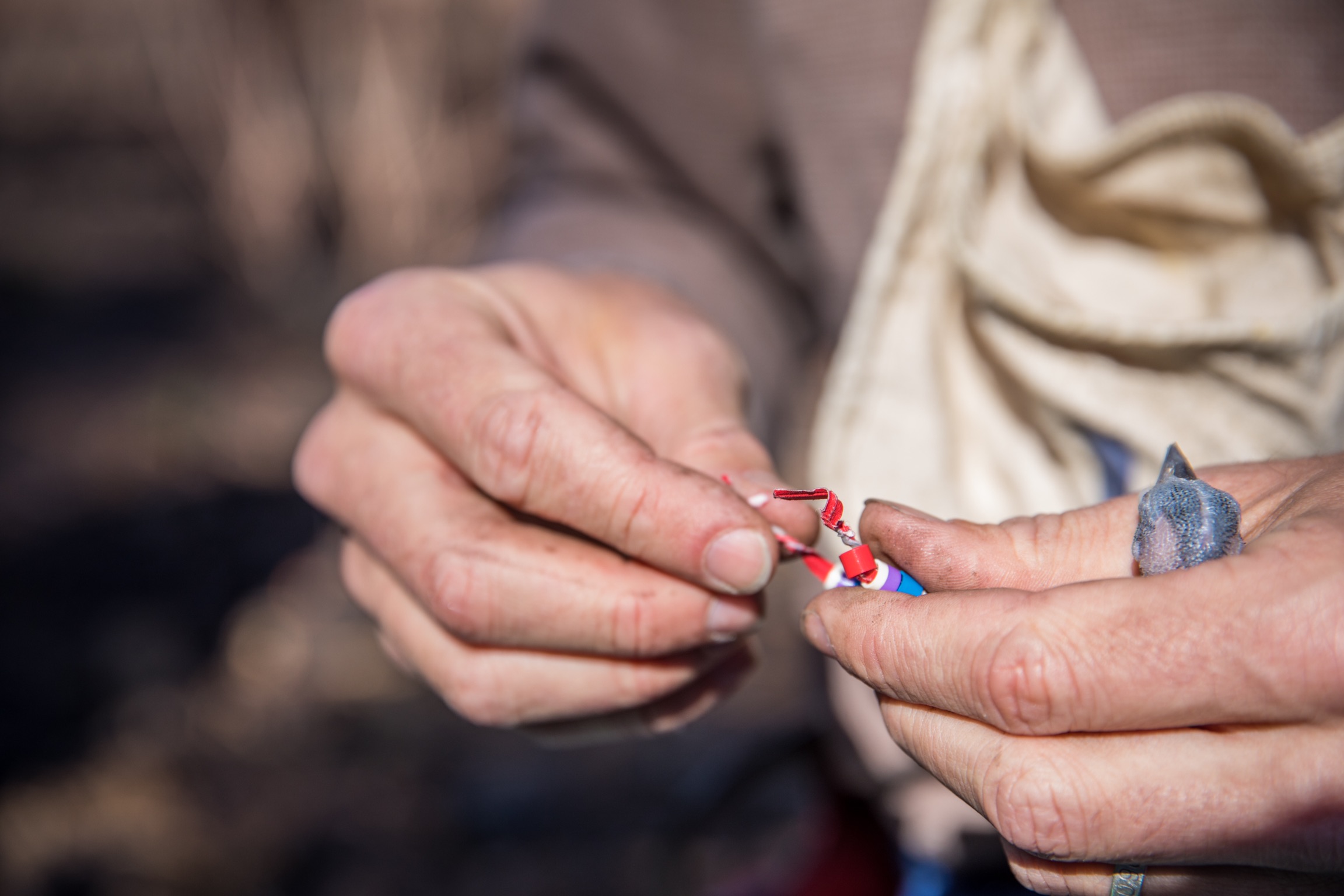
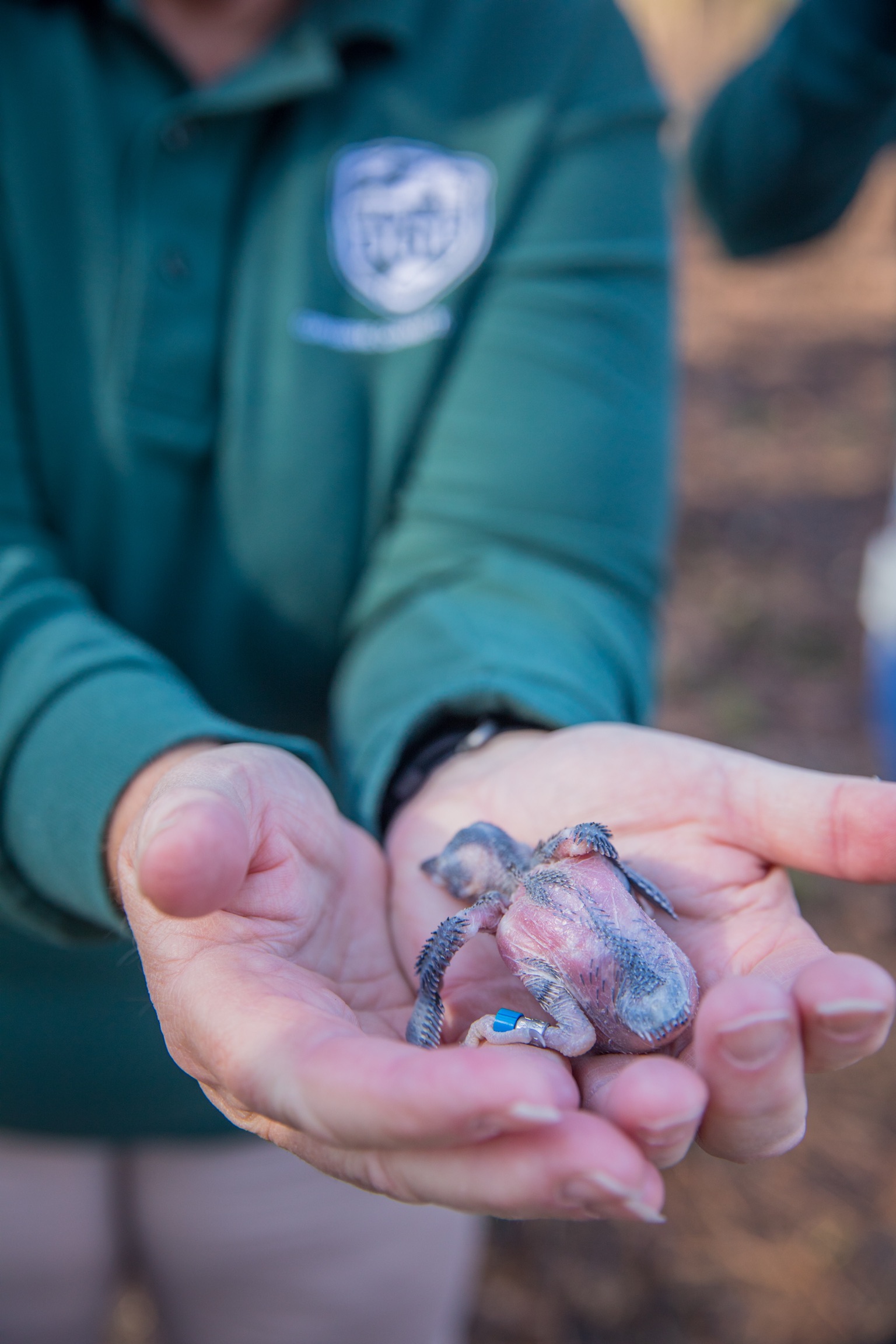 The parents resumed feeding their young once the chicks were returned to the nest.
The parents resumed feeding their young once the chicks were returned to the nest.
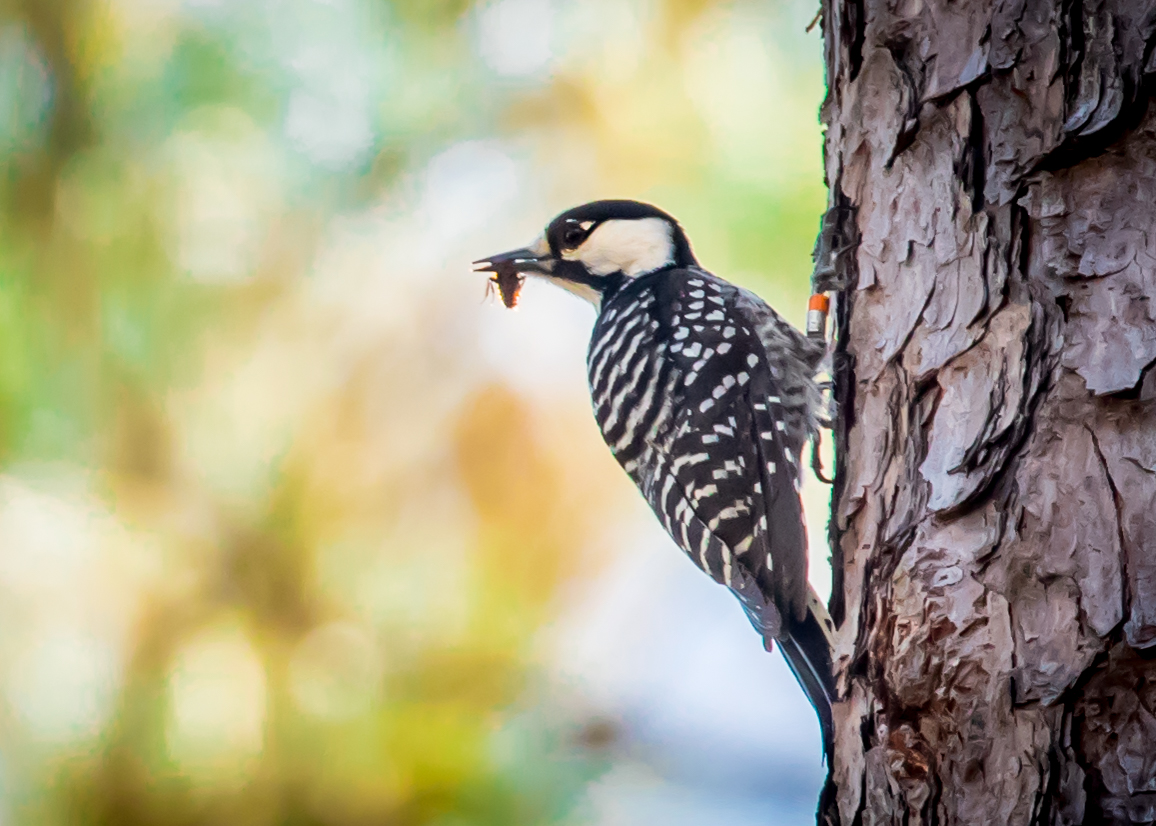
What’s next? Red-cockaded woodpecker young typically fledge from the nest at 26 – 29 days from hatching, which the two chicks are expected to do shortly after Memorial Day. Virginia Department of Wildlife Resources (DWR) biologists will conduct a “fledge check,” using binoculars and spotting scopes to identify the birds by their bands in order to confirm that they left the nest successfully and are faring well.
